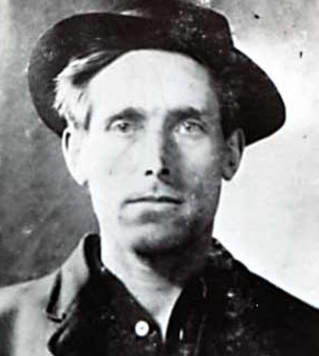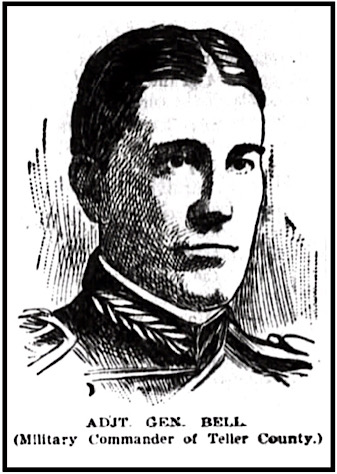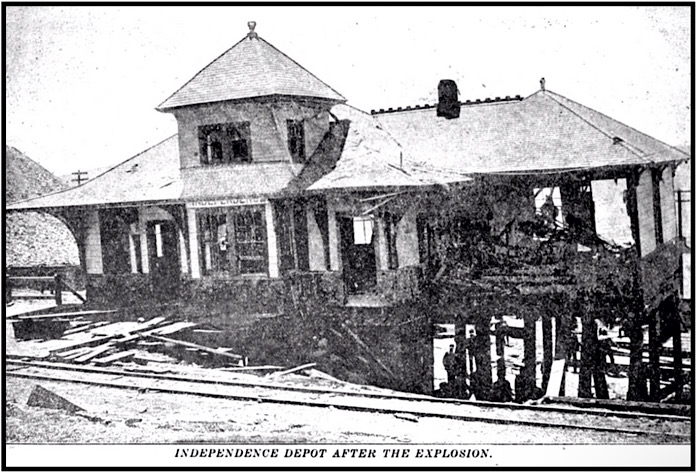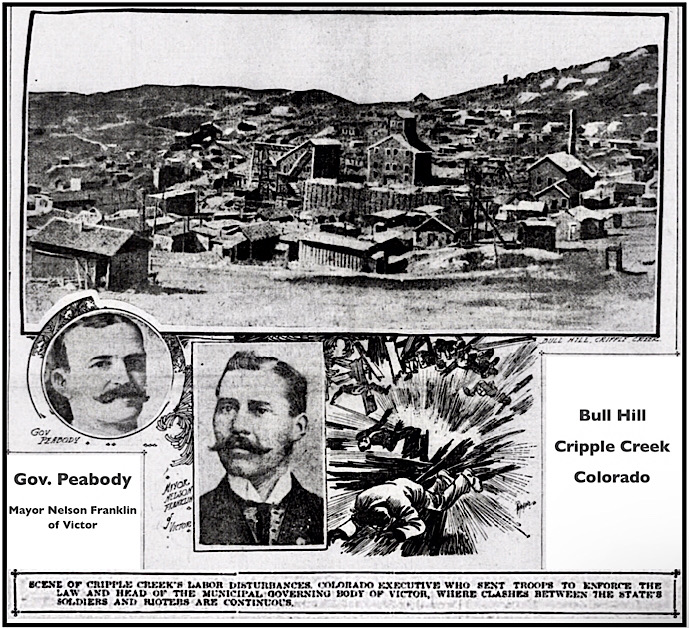 ————————–
————————–
Hellraisers Journal – Saturday August 20, 1904
The Western Federation of Miners Remembers Michael O’Connell
Michael O’Connell, the deposed marshal of the city of Victor, is now numbered with the silent majority, who are wrapped in the somnus of death. The good, brave and generous man who came to Colorado with the blush of boyhood on his cheek, is now numbered with the thousands who sleep in Evergreen cemetery, in the City of the Clouds. For sixty days he suffered all the humiliation which a Mine Owners’ Association and a Citizens’ Alliance could heap upon him in a bull pen, and when his friends secured the bonds which liberated him from persecution and imprisonment, he was forced to leave his home and family under threats from a hired, blood thirsty mob. He was even denied the right of an American citizen, to remain at his home. We are told that a man’s home is his castle, and that no man or party of men, has the right to invade or trespass upon the sacred precincts of the home. But the Mine Owners’ Association and a Citizens’ Alliance have no reverence for the sanctuary of a home, no sympathy for the breaking heart-strings of a woman’s holy love for her husband and no pang of pity for the flowers of childhood that bloomed in the once happy home of Michael O’Connell.
We have known the dead man for fifteen long years. We are proud of the honor of having been numbered among his friends. The Great Ruler of human destiny and Creator of human life only ushers into existence in a generation a few men like the departed Michael O’Connell.
He was the soul of honor, a prince among men—one of those grand characters, whose every act in life soared in an atmosphere of moral grandeur where dishonor could not live. In his death, another sacrifice of human life lies indirectly at the door of the governor of this state. There was no protection for the brave and heroic marshal of Victor. He had sinned against the governor, because his heart beat in sympathy with the cause of the striking miners. He was a law-breaker and an insurrectionist, because his honor and his manhood scorned to bow in submission to the Mafia, that has been backed and supported by the armed power of the state. In the years that are to come, if a conscience returns to the chief executive of Colorado, the memory of Michael O’Connell’s death will rise up like a ghost, to haunt him in his midnight dreams.
In the Cloud City the brave man has been laid to rest. All over the jurisdiction of the Western Federation of Miners the untimely death of Michael O’Connell will be mourned, and the keenest sympathy and sorrow will be felt for his bereaved wife and fatherless children.

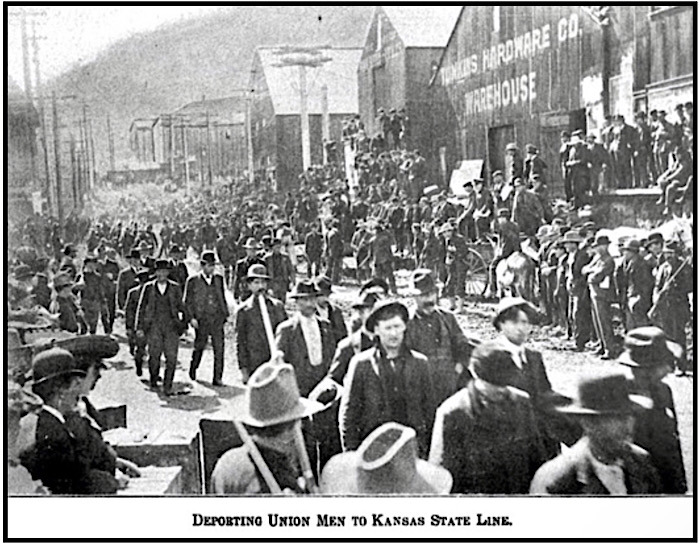
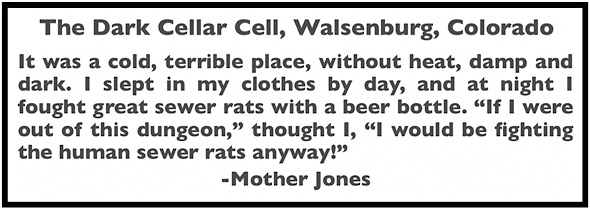 ————————-
————————-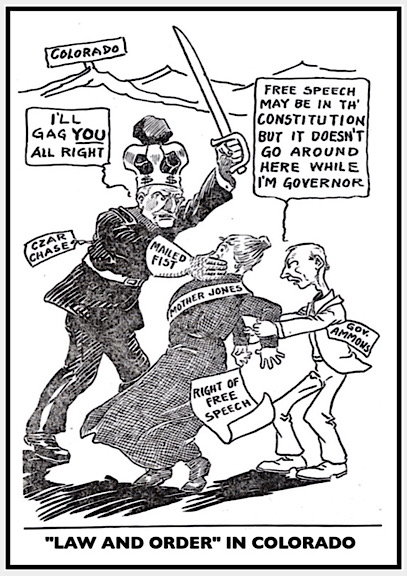
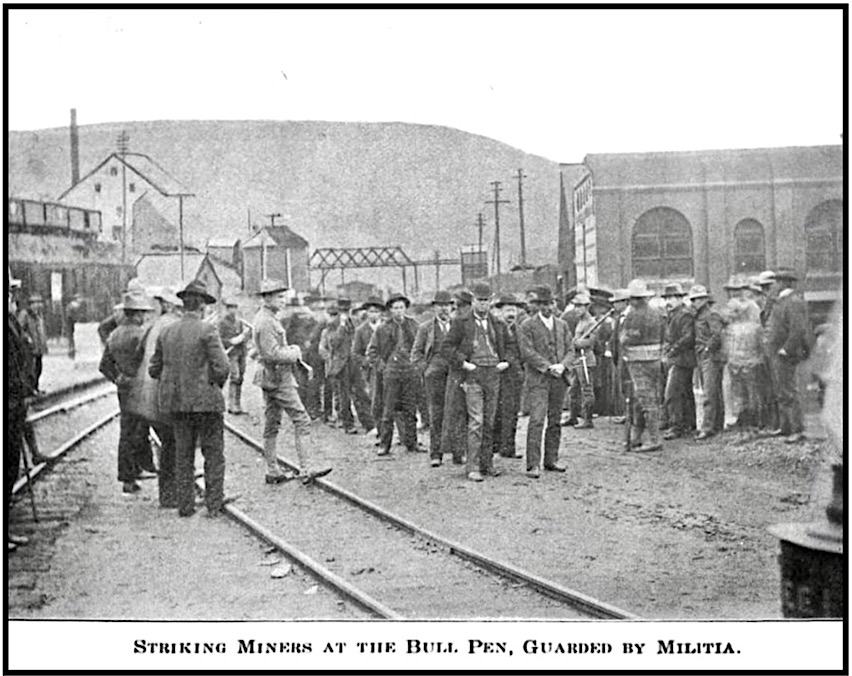
 —————
—————
 —————
—————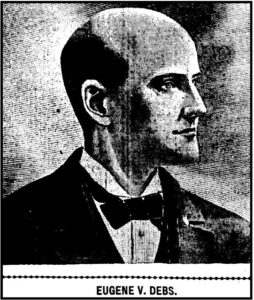
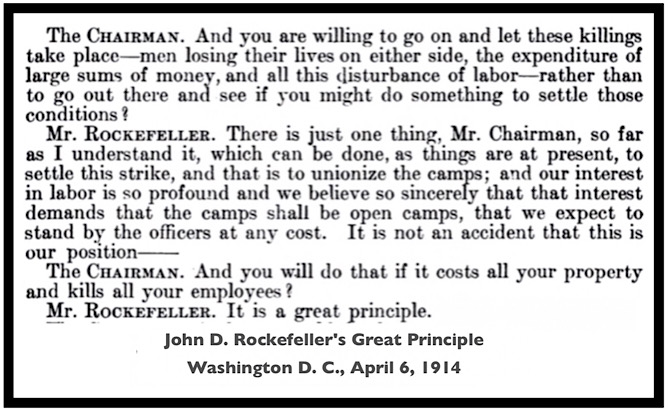 —————
—————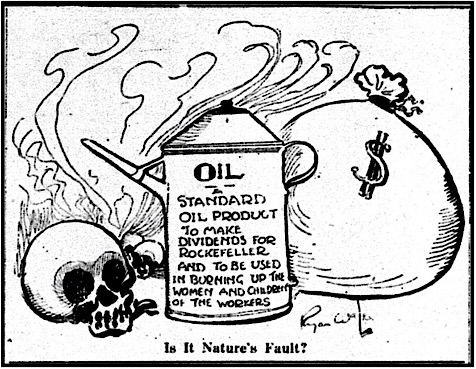
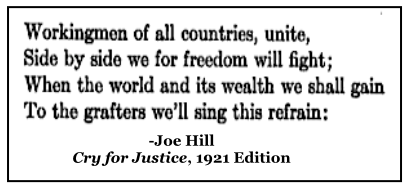 —————
—————